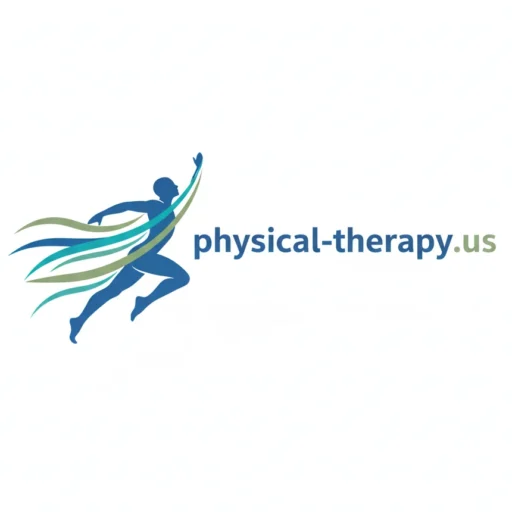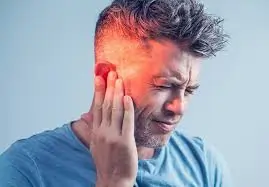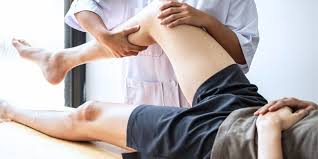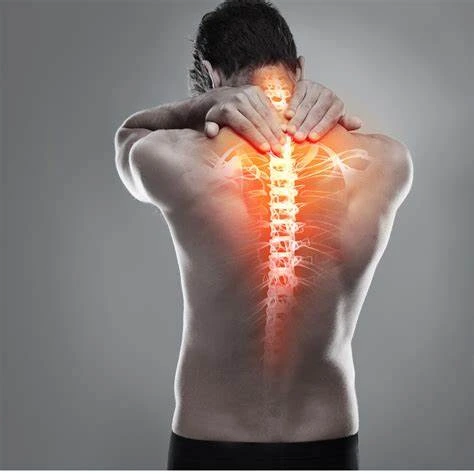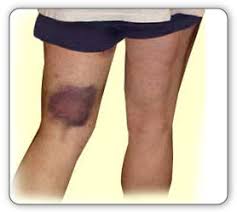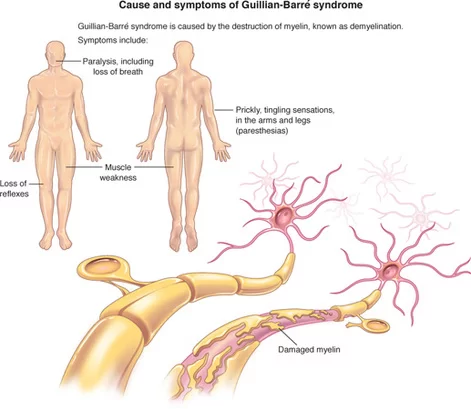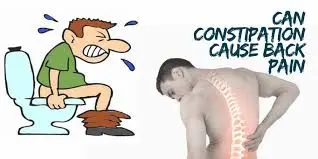Can Neck Pain Cause Ear Pain?
Introduction:
Although ear and neck pain are frequent complaints, many people are unaware of the connection between the two conditions. Numerous nerves, muscles, and structures that are shared by the neck and ears can affect each other.
Referred pain in the ear can occasionally result from strained neck muscles or from irritation of cervical spine nerves. Because of this relationship, people frequently assume that the issue is with the ear, while, in reality, the neck may be the source. Accurate diagnosis and successful treatment depend on an understanding of how neck pain might contribute to ear pain.
Imagine waking up with a persistent ache in your ears and neck. This perplexing pair of pains is experienced by many people. Explore the typical causes, learn practical management techniques, and determine when seeking medical advice is appropriate.
The Neck/Ear Relationship:
Ligaments and joints become inflamed and occasionally rip when the neck is hurt or mistreated. In addition to impairing connections across the central nervous system, irritation on or near the brain stem can result in TMJ, muscle spasms, and ear pain. Things can soon get out of control once the C-1 and C-2 vertebrates are misaligned.
Parts of the neck stretch up and around the ears, which worsen the situation and explain why the pain there can be so severe. If one wants to live pain-free, this part of the body needs to be kept healthy because it is extremely sensitive to even small changes. People with persistent ear pain frequently mistakenly think that their only option for relief is to take large quantities of prescription drugs.
How Can Neck Problems Lead to Ear Problems?
Despite what many people think, the location and movement of your neck and spine can significantly affect how well your inner ear functions. The eustachian tube may obstruct or fill with fluid when the lining of these canals is stressed.
Signs and Symptoms:
The following symptoms are likely to occur if your ear issue is related to a misalignment in your upper cervical spine: hearing loss, tinnitus, vertigo, aural fullness (the sensation of a plugged or full ear), problems with balance and coordination, increased headache frequency, nausea, and vomiting. You might have Meniere’s disease, a chronic condition that impairs balance and inner ear function, if these episodes regularly cause vertigo and ringing.
How neck and ear pain are related:
Some potential causes of this ear-neck pain include the following:
Cervical spine issues:
- This condition, known as cervical spondylosis, can be caused by conditions like osteoarthritis, cervical degenerative disease, or a ruptured disc. One of the most prevalent neurological conditions affecting the elderly is cervical degeneration.
Temporomandibular joint (TMJ) disorders:
- Ear pain is typically located in front of or beneath the ear, and if you have TMJ dysfunction, you may have tightness and stress in your jaw or neck. Additionally, you may have facial pain, eating difficulties, and/or jaw clicking.
Ear infections (otitis media/externa):
- Fever, ear drainage, and hearing loss are other signs of an ear infection to be aware of. About 80% of kids will get a middle ear infection at some point in their lives, making otitis media, or middle ear infections, incredibly frequent among kids.
Throat infections (tonsillitis/pharyngitis):
- You may potentially have a throat infection if you have been experiencing neck and ear aches.
Muscle strain or tension:
- Long-term bad posture, carrying a heavy object, or sleeping in an uncomfortable position can all cause neck and ear pain.
Treatments for Ear Pain Caused by Neck Pain:
Cervical spine treatments:
The underlying cause of the problem determines the cervical spine treatment options. Although there is no known cure for cervical spondylosis, there are strategies to control the pain. One form of physical treatment that might be beneficial is cervical spine therapy. Other methods of treating cervical spine pain include applying heat or ice to the neck or utilizing over-the-counter painkillers.
Temporomandibular joint (TMJ) disorder treatments:
Ibuprofen is one of the over-the-counter drugs that can help control TMJ pain in the short term. However, long-term treatment for TMJ pain may include stress management techniques as well as TMJ strengthening exercises and stretches.
Prescription pain or anxiety drugs may also be used as part of treatment plans. Your doctor may suggest certain intraoral device types, including splints or night guards, that fit over the teeth. Nevertheless, the evidence supporting the claim that they will alleviate pain is weak.
Ear infection treatments:
The cause of the infection and the affected area of the ear determine how to treat an ear infection. Your doctor might advise you to wait to see if this is the case, though, as these infections typically go away independently.
Throat infection treatments:
Treatment for throat infections is based on the type of infection, just like for ear infections. While your body fights off the virus, pain medication, such as over-the-counter pain relievers, may help you with a sore throat. Additionally, gargling with warm salt water, taking throat lozenges, and drinking fluids can all be used to treat tonsillitis. Only if severe tonsillitis keeps coming back is this done.
Muscle strain treatments:
In the short term, treating muscle tension may involve using heat and ice to relieve neck muscle pain and using over-the-counter pain medication. In order to help restore neck strength, physical therapy or muscle strain therapy may be used as additional muscle strain treatments or techniques for relieving muscle stress. Additionally, some people might benefit from chiropractic care.
Conclusion:
Yes, ear pain can result from neck pain. This is frequently because the neck and the components surrounding the ear share neural pathways and muscle connections. Referred pain occurs when pain from the neck is felt in the ear as a result of conditions such as temporomandibular joint (TMJ) abnormalities, cervical spine problems, or muscle strain. The related ear ache may be lessened with a proper diagnosis and treatment of the underlying neck problem.
FAQs:
When should ear ache become a problem for me?
It’s difficult to focus on anything else when you have excruciating ear pain. Over-the-counter painkillers can be effective in certain situations. However, it’s essential to notify your healthcare physician if your ear ache persists for days or returns often.
What’s causing the ache in my ears and neck?
There are many different causes of neck and ear pain, such as infections, tense muscles, or even disorders of the spine. While neck pain can result from injuries like whiplash, bad posture, or muscle strain, ear pain is frequently caused by illnesses like strep throat or sinus infections. It’s crucial to take into account the likelihood of a relationship because pain in one location may occasionally be a sign of another.
Can improper sleeping lead to ear and neck pain?
Using a worn-out or unsupportive mattress or pillow, or sleeping in an incorrect posture, like on your stomach, might result in neck pain. With a medium-firm or firm mattress and a supportive pillow made for your preferred sleeping position, it’s ideal to sleep on your side or back.
Which neck muscle is responsible for ear pain?
The side or front of the neck may have trigger points for someone who has sternocleidomastoid pain. Pain from this muscle often extends to other areas, such as the sinuses, eyes, or ears.
Which medication works best for nerve pain in the neck?
A doctor may suggest a mix of treatments, such as medication, physical therapy, and other therapies, for neck nerve pain. Pain and inflammation can be controlled with drugs such as muscle relaxants, NSAIDs, and in certain situations, antidepressants or anti-seizure drugs. Steroid injections and, in extreme situations, surgery are further choices.
Are neck and ear pain related?
Cervical Spine and Neck Conditions
It could be associated if you have headaches, neck pain, burning in your neck, and ear trouble.
How can ear and neck pain be resolved?
There are several natural methods for treating neck and ear pain. In addition to stretching and proper posture, heat and painkillers may also be used to treat neck pain.
Is it possible for neck issues to lead to ear issues?
If treatment is not received, this inflammation may progress to a serious infection, which could result in inner and middle ear edema and/or fluid accumulation.
References
- Other causes of ear pain. (n.d.). The MetroHealth System. https://www.metrohealth.org/otolaryngology/ear-care/other-causes-of-ear-pain
- AuD, T. T. (2024, November 6). Effective solutions for managing ear and neck pain. Miracle Ear. https://www.miracle-ear.com/blog-news/ear-neck-pain
- Felson, S., MD. (2020, June 15). Ear ache and stiff neck. MedicineNet. https://www.medicinenet.com/ear_ache_and_stiff_neck/multisymptoms.htm
- Upper Cervical Chiropractic Las Vegas. (2021, February 28). Can neck problems cause ear problems? | Upper Cervical Chiropractic Las Vegas. Upper Cervical Chiropractic Las Vegas |. https://uppercervicalchiropracticlv.com/can-neck-problems-cause-ear-problems/
- Kaplan, N. (n.d.). Ear pain is a pain in the neck. Walnut Creek Chiropractic | Walnut Creek Chiropractors. https://advanceuc.com/ear-pain-is-a-pain-in-the-neck/
